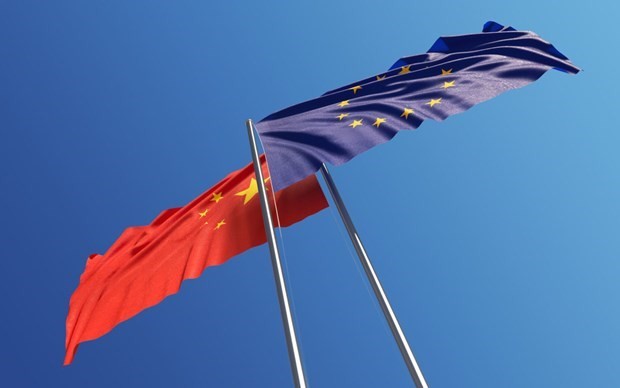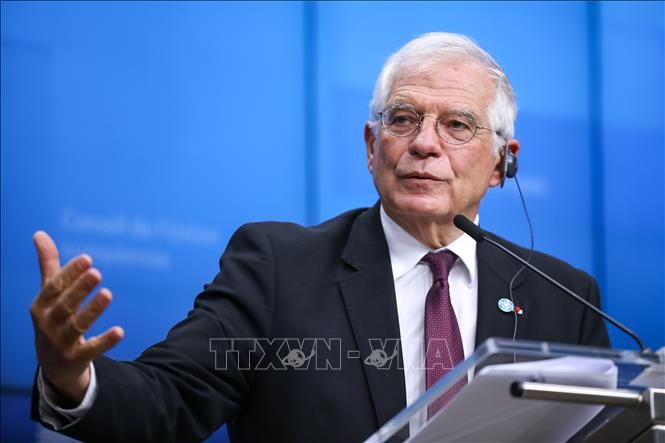(VOVWORLD) -The virtual EU-China Summit on Friday will be another test of their relationship amid political and economic tensions and the Russia-Ukraine conflict.
 (Photo: politico.eu) (Photo: politico.eu) |
The summit’s agenda includes trade and investment relations, climate change action, digitalization, human rights, post-pandemic economic recovery, and regional issues. In addition to the China-Russia relationship and the conflict in Ukraine, leaders of the EU and China will discuss a trade dispute with Lithuania and the West's accusations of human rights abuses.
Challenges
China has tried to find common ground with Europe in handling relations with Russia to keep their differences from affecting their overall relationship. China has insisted that it’s inappropriate to link its stance on the Ukraine crisis to the future of China-EU relations.
Economically, the stalled bilateral investment agreement signed by China and the EU in late 2020 and their disagreement over Chinese Taipei are real obstacles that both sides need to overcome. Their relations deteriorated in 2021 in the wake of reciprocal sanctions over accusations of abuses in the Xinjiang region. The EU has asked China to immediately remove sanctions against European parliamentarians and scholars to break the deadlock in ratifying their investment agreement. The EU lodged a complaint with the World Trade Organization over China's treatment of Lithuania, an EU member. Beijing has dismissed the complaint.
Europe has been pushing China to change the terms of its market opening, competition mechanism, cooperation on climate change, and protection of biodiversity.
 EU foreign policy chief Josep Borrell (Photo: Xinhua/VNA) EU foreign policy chief Josep Borrell (Photo: Xinhua/VNA) |
Cooperation, mutual trust
Despite major disagreements, the EU and China both value their current relationship. Europe does not want any more economic-diplomatic tension with China at a time when it is in a full-blown confrontation with Russia.
China doesn’t want to harm its leading trading partner, nor does it want to adopt policies that might make Europe lean further toward the US in the long-term strategic competition between the US and China. The Chinese Foreign Ministry said China and the EU should be forces protecting world peace and promoting the shared development of the Chinese and European markets. The two sides should strengthen strategic exchanges and mutual trust, conduct dialogue on the basis of mutual respect and benefit, and add positive energy and stability to the current global disturbances.
Despite worsening political and diplomatic ties, economic and trade cooperation between China and the EU continues to expand. Their trade turnover totaled more than 770 billion USD in last year. In the first two months of this year, the EU surpassed ASEAN as China’s largest trading partner, after losing that position in 2021. Trade between China and the EU increased 14.8% in January and February, reaching 137 billion USD.
EU foreign policy chief Josep Borrell said in January that the April 1 summit will be an important moment to see where the EU are in its relations with China. “There are things that are going well, others less well,” he noted.